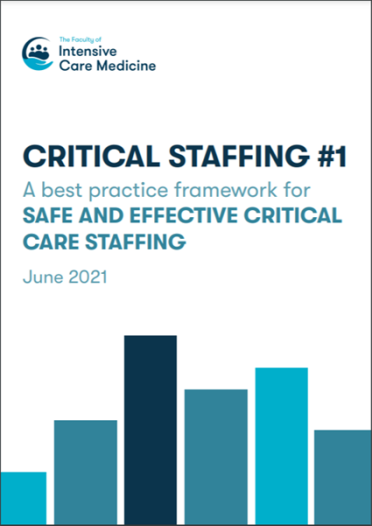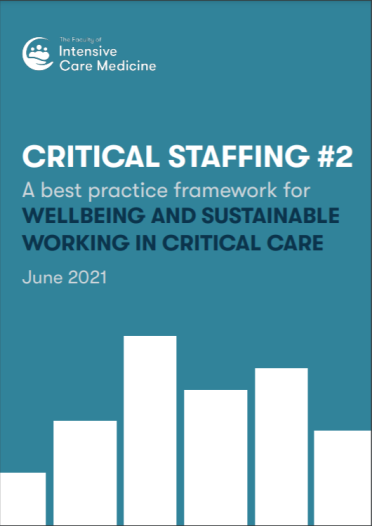Critical Staffing
The Faculty is delighted to launch its Critical Staffing series, developed by the Careers, Recruitment and Workforce Committee. We would like to thank everyone that contributed to this project. We hope you find the documents useful.
What is the Critical Staffing series and who are they for?
The Critical Staffing series brings together recognised and practical ‘Best Practice Frameworks’ on staffing. The frameworks have been produced to guide commissioners, hospital management and critical care teams on how to ensure they have developed safe, effective and sustainable staffing in critical care.
The response of Critical Care services and staff to the public health threat of COVID has been exemplary but necessitated unprecedented changes to staff working. The effects on staff’s mental and physical health and their emotional wellbeing are increasingly apparent. Critical Care services need to be engaged in mitigating the longer-term impact of necessary emergency responses.
The impact of short-term pandemic response working practice changes now need to be considered within the context of a service that needs to expand, and will continue to be subject to pressure. Retention of staff across all the Critical Care multidisciplinary team and for a lifelong career in ICM requires attention.
Download the Critical Staffing documents
What does Critical Staffing #1 cover?
Critical Staffing #1: A best practice framework for safe and effective critical care staffing brings together best practice considerations to ensure you are recruiting, managing and developing a sustainable team, with particular reference to the intensive care medical workforce.
What does Critical Staffing #2 cover?
Critical Staffing #2: A best practice framework for wellbeing and sustainable working in Critical Care brings together best practice ways to provide a better employee experience with particular reference to the intensive care medical workforce.
What does Critical Staffing #3 cover?
Critical Staffing #3: Returning to Work explores the many reasons why time away from work is taken. It uses vignettes to demonstrate some of the difficulties that individuals have experienced during the return-to-work process and highlights examples of good practice that could support a successful return and improve the overall experience.
Staffing, staffing, staffing. For critical care staff, our most serious concerns about meeting the demands placed on critical care by SARS CoV-2 were never about ventilator numbers, it was about staffing expanded units, staffing to meet patients' care needs, and staffing to best uphold the expected high standards of UK critical care. We know Critical Care staff are our most precious resource, and retention is as important as recruitment. 'Critical Staffing' is not just for critical care teams but also for those hospital management structures that are planning for the short, medium and long term.



